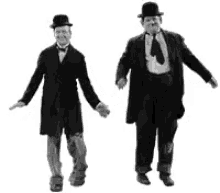CSOs urge Cambodian government to end impunity for crimes against journalists
-
Recently Browsing 0 members
- No registered users viewing this page.
-
Topics
-
-
Popular Contributors
-
-
Latest posts...
-
10
Analysis Journalists Targeted: Israel Blocks Foreign Reporters in Gaza
https://deadline.com/2023/10/bbc-reporters-pro-palestine-investigation-1235574551/ -
8
Economy Cambodian Labour Shortage Hits Pattaya’s Economy
Well, those Cambodians are - in many cases - mistreated like nowhere else. There is a big hotel which got a new coat of paint on its outside facade and thousands of square metres were to be painted. Shortly before the Cambodian workers - all illegally on the job - were finished, the hotel reported the latter to the authorities, the caged pick-ups pulled up, arrested all of them, fined them 500 Baht each and sent them to the border. The contractor did not have to pay any salaries and the hotel owner got away with half the price for the paint job. Win win for everybody ........ except those who actually worked on the job. -
59
The mainstream media are digging their graves
I don't know, don't care and it's none of my business. I leave it to your rabid imagination. However I do suggest that Rachel Madow does produce incisive, accurate and well researched commentary which clashes with whatever echo chamber you favour. It is watched and noticed by many people - perhaps it is that rather than your imagined image of her domestic life which "gets on your wick"? -
7,839
-
8
Economy Cambodian Labour Shortage Hits Pattaya’s Economy
Where have all the Murmese gone -
32
Tourism Cannabis Reclassified: Thailand's Tourism Strategy
I would not know of one single case where the legalization of cannabis would have led to an increase on dop dependents. I also never came across an outdoor establishment being "smoked" in clouds of cannabis smoke. It certainly hurt the boys in brown as they could not collect any fees and fines any longer though ............
-
-
Popular in The Pub








Recommended Posts
Create an account or sign in to comment
You need to be a member in order to leave a comment
Create an account
Sign up for a new account in our community. It's easy!
Register a new accountSign in
Already have an account? Sign in here.
Sign In Now